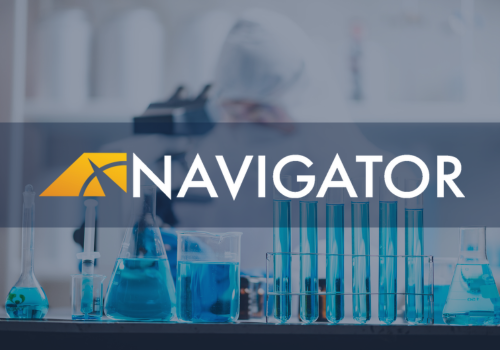
Why Life Sciences Businesses Need ERP
For most life sciences startups, the product is the business. This makes sense because many life sciences businesses come out of fundamental innovation in the lab, and thoughts of how best to bring the product to market only come later.
Going to market is a lot harder than life sciences startup founders often realize, however. Commercialization entails inventory and supply chain logistics, strict process controls around sign-off, standardization and inputs, and things like process validation. There’s also the known challenge of getting outside investment for commercialization.
Often we see life sciences businesses start to think about process controls and the systems that support it when a CFO comes aboard. That’s usually when installing an enterprise resource planning solution (ERP) enters the conversation. The push for ERP also frequently comes from the quality team, borne of the need for meeting regulatory requirements.
While rolling out an ERP at this stage makes sense, it makes even more sense for a life sciences business to set its ERP foundation earlier. The sooner a life sciences startup has its foundation in place, the more it can focus its core business and the many challenges that lie ahead during the move from early-stage development to full-scale commercialization.
Put the Foundation in Place Early
ERP is end-to-end business software that centralizes and systematizes all aspects of a business and enables rapid growth as a life sciences startup matures. Almost all mature businesses use ERP, and putting a system in place early particularly benefits life sciences startups with a growth mentality.
1 - Sets a proper financial foundation
The typical startup begins with spreadsheets and then moves to a small business accounting solution such as QuickBooks. But QuickBooks is not meant for the financial requirements of a life sciences business. It is too limited.
ERP comes with full-featured financial management, modeling, and analytics. It handles all financial and accounting needs for a life sciences startup both now and as it grows into a larger enterprise. When a startup puts an ERP system in place, it sets a solid foundation for ongoing financial management as the business expands.
2 - Helps with product development
Even before commercialization, a life sciences startup must juggle the logistics of early-stage product development. This requires solid project management.
As an end-to-end business solution, ERP comes with the project management tools that a life sciences startup needs for development, managing clinical trials, and coordinating with partners. By using ERP for project management, a life sciences startup not only speeds up the process. It also makes the jump to commercialization easier because it is already using the same system it will need for commercialization.
3 - Builds validation and quality control from the start
Life sciences businesses must contend with FDA system validation and strict quality controls unlike businesses in most other industries. These requirements can be tricky, and they require careful planning or commercialization can be significantly delayed.
By putting in an ERP system early in the process, life sciences startups can start thinking about and integrating these quality controls and validation requirements from the beginning. By having an ERP in place before commercialization ramps up, a startup can build these processes into the business from day one instead of having to adjust processes later in the process to meet those requirements.
4 - Establishes best practices by default
Cloud-based ERP solutions such as SAP Business ByDesign and S/4HANA Cloud Public Edition come as turnkey solutions with industry best practices built in by default. So instead of having to reinvent the wheel, life sciences firms that roll out an ERP early can piggyback off these industry best practices and focus on core product innovation instead.
Prepackaged industry solutions for life sciences businesses can further help an early stage life sciences business scale up fast without having to define and configure the processes needed for the business.
5 - Enables fast scaling
Things move fast as a life sciences business nears commercialization. By putting an ERP system in place early, a startup has laid the foundation for rapid growth before growth heats up.
With ERP, a life sciences business has what it needs to grow before it needs it. It can turn on additional functionality as it scales, and confidently know it has the foundation for what lies ahead without having to deal with systems rollout during the messy phase of scaling up.
6 - Looks good for investors
Investors like businesses that have ERP already in place. By having an ERP already running, a life sciences startup signals that its processes are well-defined and that investors don’t have to worry about backend systems or the management controls needed for growth.
ERP shows business maturity, and investors know that a startup already using an ERP system will be able to provide the financial reports and projections required by investors. Life sciences firms running ERP are ready for outside investment.
Start Small But Have What You Need Later
One of the advantages of cloud ERP is that a life sciences startup can put the system in place without having to use all its functionality at once. Functionality can be turned on or off as needed, so life sciences businesses can put the system in place early and lean on only a few of its functions such as project or financial management. As the business grows, the business then can expand to leverage additional functionality.
To learn more about why life sciences startups need ERP, watch our video that does a deep-dive on the topic: ERP for Life Sciences Businesses.
For more on how ERP can help your life sciences startup, you also can contact one of our experienced ERP consultants at (801) 642-0123 or by writing us at info@nbs-us.com.

